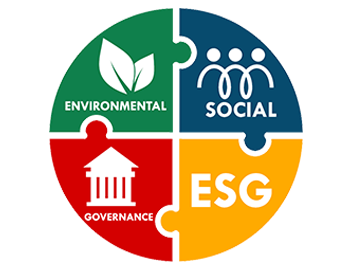 ESG - Environmental, Social and Governance
ESG - Environmental, Social and Governance
EDI Office / Committee
AASTMT Equality, Diversity and Inclusion (EDI) Office
1. EDI Mandate and Institutional Designation
AASTMT Equality, Diversity, and Inclusion office, formally appointed and tasked by the administration and governing bodies to advise on and implement institutional policies and training related to equity, diversity, and human rights.
These functions are integrated across student affairs, human resources, ethics compliance, and academic leadership, ensuring a university-wide approach to inclusion and social justice on campus.
These include:
- An institutional Equality, Diversity, and Inclusion Policy (last reviewed 2024), approved by the SDG Workforce Committee and managed under the oversight of the Vice President for Education and Student Affairs, the Head of Human Resources, and the Dean of Scientific Research and Innovation.
- The Deanery of Student Affairs, which operates as the university’s functional EDI Office, supported by specialized departments, including:
- The Student Support and Expatriate Affairs Department
- The Disabilities Advisers Unit
- The Psychological Support Services Team.
These bodies are explicitly tasked with advising university leadership, developing inclusive strategies, and delivering targeted programs to ensure human rights, equity, and access across the institution.
2. EDI Officer and Committee Functions
Designated EDI Officer Role:
- Embedded within the Deanery of Student Affairs
- Coordinates policy implementation and student support systems
- Oversees programs addressing marginalization, accessibility, and social justice
- Liaises with HR and academic departments to deliver EDI-related training
Governing Body Assignment:
- The officer’s role is officially mandated and monitored by:
- The AASTMT Board of Trustees
- The Vice President for Education and Student Affairs
- The SDG Workforce Committee (approving body for EDI policy)
3. EDI Policy and Implementation
AASTMT’s Equality, Diversity, and Inclusion Policy outlines legal, procedural, and ethical commitments to DEI, including:
- Non-discrimination clauses covering gender, age, race, disability, religion, and more
- Guidelines for ethical behavior, grievance handling, and human rights protection
- Implementation through:
- Inclusive curriculum design
- Accessibility services (e.g., Accessible Education Center, TAP)
- Equitable hiring practices and training via Human Resources
4. EDI Training and Capacity-Building Programs
AASTMT offers structured training sessions led or coordinated by the EDI officer and relevant committees:
- Mandatory training on unconscious bias and fair recruitment
- Staff development programs promoting:
- Gender equity in hiring
- Inclusive teaching strategies
- Anti-harassment protocols
- Student orientation programs covering EDI values and reporting mechanisms
These training courses are integrated into onboarding, promotion pathways, and annual reviews.
5. Oversight and Monitoring
Monitoring Tools:
- Annual Performance Review (APR) process evaluates EDI outcomes:
- Admissions and hiring statistics
- Promotions by gender and role
- Satisfaction and grievance resolution rates
- Surveys are conducted to measure staff and student experiences regarding fairness, equity, and access
.



